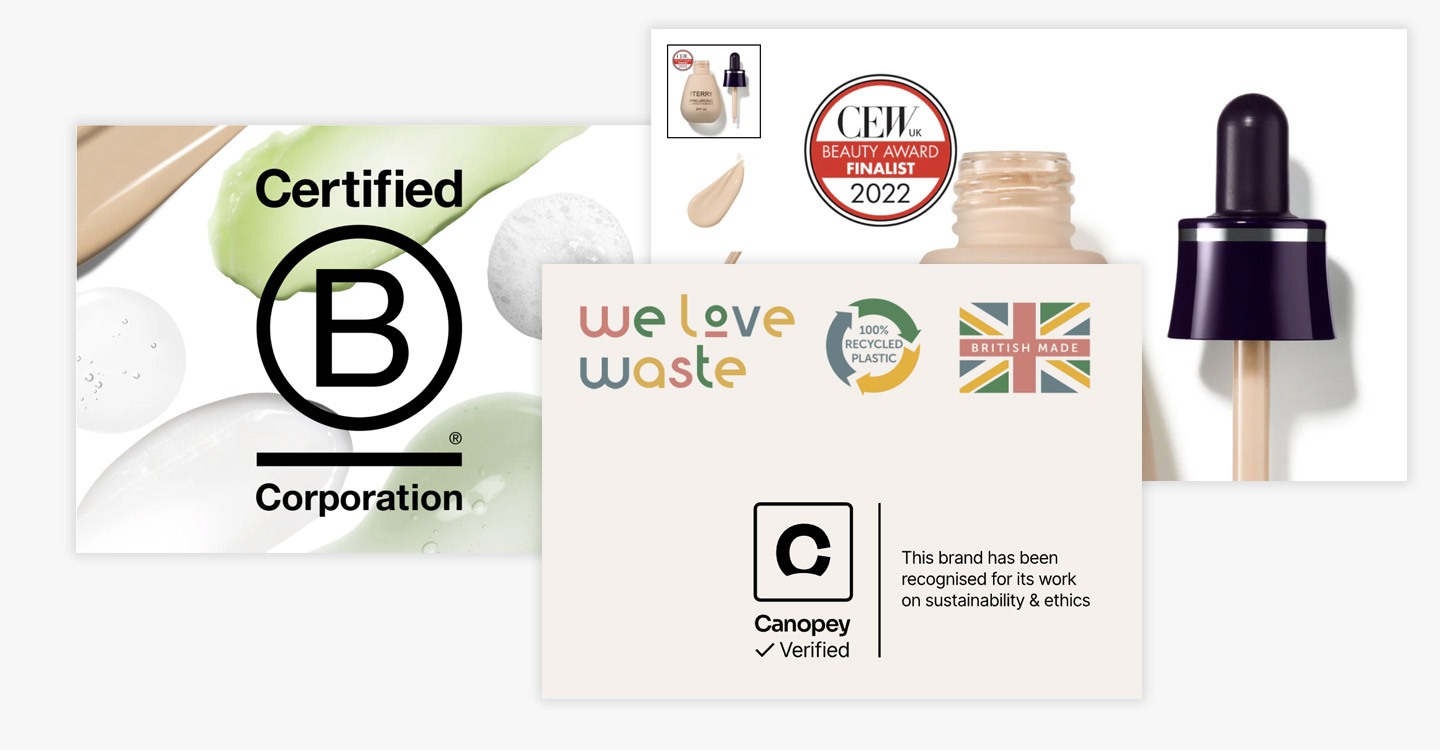Top Strategies: How to Use Trust Signals to Improve Ecommerce Conversions
By Joe Tuckwell
17th March 2025


Want to know how to use trust signals to improve conversions on your online store? In this article, we’ll explore key trust signals such as customer reviews, security badges, and clear policies, and show you how to effectively use them to increase your online sales.
Key Takeaways
- Trust signals, like reviews and security badges, are essential to boost consumer confidence and drive ecommerce conversions.
- Using social proof, such as customer testimonials and influencer endorsements, can significantly influence purchasing decisions and enhance brand trust.
- Implementing robust security measures and providing clear policies can prevent customer anxiety and encourage purchases, leading to increased sales.
Understanding Trust Signals

Trust signals are essential for building consumer trust and boosting conversion rates in ecommerce. They help alleviate customer concerns and make them feel secure while making purchases, showcasing the business’s reputation and safety.
When consumers perceive a website as secure, they are more likely to complete transactions, leading to higher sales and sustained revenue. Understanding trust signals involves exploring their definitions and types.
What are Trust Signals
Trust signals are the elements that make online shoppers feel safe and confident in an online store. They alleviate doubt by showing external validation like reviews, ratings and security badges so you can shop comfortable and worry free.
Guarantee trust signals like refund policies or secure payment options give peace of mind and protect the customer in case of issues with the retailer. Without these signals customers are in cognitive overload and doubt and will maybe abandon the cart.
Types of Trust Signals
Trust signals vary depending on the business, industry and other factors and plays a big role in establishing customer confidence. They can be website design, content and user interaction. Social proof like reviews, ratings and customer photos or videos have a big impact on purchase decisions. Endorsements from influencers and mentions from reputable sources are powerful forms of social proof.
Other examples are joining programs like Verified by Visa, showing client logos of well known brands and using trust badges to indicate that the website is trustworthy.
Leveraging Social Proof

Social proof is a psychological phenomenon where people rely on the behavior and opinions of others when making decisions. Displaying social proof on an ecommerce site serves to establish trust quickly and reassure customers about their buying decisions. This can be achieved through customer reviews and testimonials, influencer endorsements, and user-generated content.
Using social proof can boost consumer engagement, elevate purchase intentions, and drive more sales.
Customer Reviews and Testimonials
Customer reviews and testimonials are powerful forms of social proof in ecommerce. A staggering 90% of customers read reviews before making a purchase, and 72% trust a business more due to positive reviews and testimonials. Posting customer reviews on product pages helps potential buyers see others’ experiences and validate their purchase decisions.
Positive customer feedback boosts brand trust through shared experiences, and professionally addressing negative comments helps maintain it.
Influencer Endorsements
Influencer endorsements can significantly boost the credibility of an ecommerce brand by associating it with well-known personalities. Consumers trust influencer recommendations for their perceived authenticity and relatability.
Collaborating with influencers can elevate consumer confidence in new or lesser-known ecommerce sites. Leveraging influencer partnerships ultimately leads to enhanced brand loyalty and higher conversion rates.
User-Generated Content

Integrating user-generated content into your marketing strategy can enhance relatability and authenticity. Showcasing customer-generated images and videos can influence buying decisions by illustrating real-life product use. User-generated content fosters a sense of community and connection among customers, contributing to a positive shopping experience and building trust.
Enhancing Security Measures
Robust security measures are essential for maintaining customer trust and preventing data breaches. A secure website boosts customer confidence and ensures a safe shopping environment. Enhancing security involves implementing strong password policies, two-factor authentication, and regular security audits.
Key elements include SSL certificates, secure payment options, and third-party security seals, which we will explore in detail.
SSL Certificates
SSL certificates are crucial for ensuring secure online transactions and boosting customer confidence. They encrypt data, making it nearly impossible for unauthorised parties to access sensitive information during transmission.
Security badges and SSL certificates reassure customers about data security, significantly enhancing trust.
Secure Payment Options

Offering various trusted payment options, like PayPal and credit cards, enhances consumer confidence and can positively influence purchasing decisions. Trust badges that reassure customers about payment safety help increase confidence. Secure shopping carts protect customer data and prevent unauthorised access, thereby enhancing trust.
Implementing a payment service provider (PSP) can help optimise the checkout experience by offering multiple secure payment options.
Third-Party Security Seals
Third-party security seals certify that an ecommerce website has been evaluated for security and quality standards. These seals enhance credibility by showing the site has been assessed for security and quality.
They indicate that a website is monitored for security threats, providing additional reassurance to customers.
Providing Clear Policies
Clear ecommerce policies significantly enhance customer trust and can lead to increased sales. Terms and conditions should be written in plain language that is easy for customers to understand. Clear shipping and return policies reduce uncertainty and build customer trust.
A clear return policy is crucial for building trust and encouraging purchases. An FAQ page reduces customer anxiety and increases the likelihood of purchase through accessible customer support.
Return and Refund Policies
A well-defined return policy can ease customer anxiety, encouraging them to complete purchases. The return policy should be clear, with minimal small print and an FAQ section to ensure understanding.
Present the return policy in an easily accessible and straightforward manner to build trust and encourage purchases.
Shipping Information
Clear communication about shipping costs and times improves customer satisfaction and trust. Clearly stating shipping costs helps prevent hidden fees, increasing customer satisfaction. Accurate delivery times build trust and encourage repeat purchases.
Keeping customers informed about shipping details fosters positive shopping online experiences and leads to satisfied customers.
Privacy Policy
A transparent privacy policy is crucial as it outlines how customer data is collected, used, and protected. A comprehensive privacy policy reassures customers about how their personal information is protected, fostering trust in the brand.
Showcasing Accreditations and Awards

Displaying industry awards on an ecommerce website demonstrates expertise and differentiates the business from competitors. Displaying industry awards and certifications can effectively increase customer trust in an ecommerce business.
We will explore the impact of industry recognitions and memberships in reputable organisations.
Industry Recognitions
Industry-specific accolades enhance perceived reliability and expertise for potential customers. Accreditations not only validate a company’s commitment to quality but also serve as a competitive advantage. Showcasing awards fosters a sense of security and encourages customers to choose your products.
Memberships in Reputable Organisations
Membership in established organisations signals credibility and ethical business practices for a legitimate business. Being part of a recognised organisation can enhance a brand’s reputation within its industry. For instance, membership in the Better Business Bureau serves as a trust signal, providing unbiased information about companies since 1912.
Utilising Professional Website Design
Visual appeal is a key component of perceived trustworthiness in an ecommerce website. An organised website with intuitive navigation significantly enhances the overall user experience. Depicting products in real-life situations with lifestyle shots or video content can build trust.
We will discuss high-quality images, intuitive navigation, and mobile optimisation.
High Quality Images
High-quality images improve product understanding and build customer trust. Investing in high-quality images helps customers understand product quality better and reduces their uncertainty during the shopping experience.
They play a critical role in an ecommerce site by enhancing the visual appeal of products.
Intuitive Navigation
A clear and simple navigation structure minimises frustration, encouraging users to stay longer. Intuitive navigation is crucial for enhancing user experience on ecommerce sites. A clean layout facilitates easy browsing, helping customers find what they need quickly.
Mobile Optimisation
Mobile optimisation is crucial as more consumers shop via mobile devices, necessitating a seamless experience. Implementing mobile optimisation can lead to higher conversion rates, as mobile users expect fast-loading, easy-to-navigate websites.
Best practices include using responsive web design, minimising load times, and streamlining checkout processes for mobile users.
Engaging with Customers

Customer engagement is essential for building long-term relationships and trust. Personalised experiences can be created through tailored emails, recommendations, and exclusive offers. Exceptional customer service is crucial for maintaining trust.
We will discuss active social media accounts, responsive customer support, and personalised communication.
Active Social Media Accounts
Engaging with customers on social media builds trust and showcases brand values. Regular social media interactions enhance the perceived value of a brand.
Brands should post regularly and reply to comments promptly to maintain trust.
Responsive Customer Support
We wrote about the importance of real-time customer support in a recent article on must-have features for your ecommerce store. It builds trust by quickly addressing customer concerns. Businesses should handle negative reviews promptly, honestly, and transparently to show commitment to customer satisfaction. Accessible contact information influences customer trust by assuring them of available assistance.
Offering multiple contact channels ensures customers feel supported and valued.
Personalised Communication
Tailoring communication to individuals fosters a deeper emotional connection. Personalised communication strategies help ecommerce businesses connect with customers on a more meaningful level. Emotional connections through personalised communication can significantly enhance customer loyalty.
Personalised interactions enhance existing customers’ loyalty and trust, leading to increased sales and retention for ecommerce businesses and helping to create loyal customers.
Final Thoughts
In the ever-evolving ecommerce landscape, trust signals play a pivotal role in building consumer trust and driving conversions. From leveraging social proof through customer reviews and influencer endorsements to enhancing security measures with SSL certificates and secure payment options, each strategy contributes to a safe and trustworthy shopping experience. Providing clear policies, showcasing accreditations, and maintaining a professionally designed website further reinforce customer confidence. Engaging with customers through active social media accounts, responsive customer support, and personalised communication fosters long-term relationships and loyalty. By implementing these strategies, ecommerce businesses can create a trustworthy environment that encourages customers to make purchases confidently.
Frequently Asked Questions
What are trust signals in ecommerce?
Trust signals in ecommerce are features like customer reviews, security badges, and transparent policies that help reassure shoppers about the store's reliability and safety. They play a crucial role in building consumer confidence when shopping online.
How do customer reviews and testimonials influence ecommerce conversions?
Customer reviews and testimonials really boost your ecommerce conversions by creating social proof and strengthening trust with potential buyers. When shoppers see positive feedback from others, they're more inclined to make a purchase.
Why are SSL certificates important for ecommerce websites?
SSL certificates are crucial for ecommerce websites because they encrypt data during transactions, keeping sensitive information safe and boosting customer trust. Without them, your customers might hesitate to shop on your site.
What role do clear return and refund policies play in building trust?
Clear return and refund policies build trust by easing customer anxiety, reassuring them that their purchase is risk-free. When shoppers feel secure, they’re more inclined to go ahead with their buying decisions.
How can personalised communication enhance customer loyalty?
Personalised communication builds stronger emotional connections and trust with customers, leading to greater loyalty and ultimately boosting sales and retention. It's all about making them feel valued!

